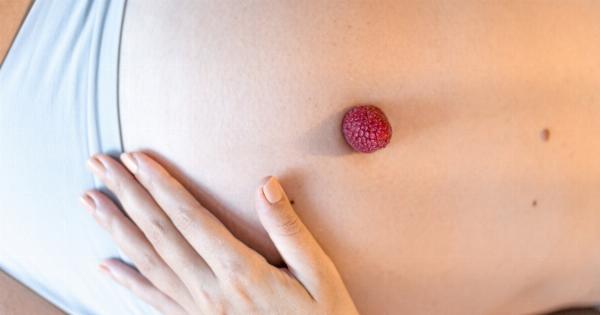Vitamin D is a crucial nutrient for maintaining strong bones and teeth, but did you know that it also plays a crucial role in a healthy pregnancy? During pregnancy, mothers supply nutrients and support to a growing fetus, and vitamin D is key for proper fetal development and the mother’s overall health. The following is a closer look at the role of vitamin D in a healthy pregnancy, including why it’s important, how much is needed, and potential risks of deficiency.
Why Vitamin D is Important During Pregnancy
Research has shown that vitamin D is crucial to overall health and wellbeing, and during pregnancy, it’s important for both mother and baby. In fact, a deficiency in vitamin D during pregnancy can lead to many issues, including:.
- gestational diabetes
- preeclampsia
- c-section delivery
- bacterial vaginosis
- low birth weight babies
- preterm delivery
Vitamin D provides numerous benefits during pregnancy. For instance, it helps the body absorb calcium and ensures healthy bone development. Additionally, it regulates the immune system to help protect against infections.
It also plays a role in insulin production, which is essential for the mother’s blood sugar levels. Furthermore, vitamin D may help prevent preterm birth and gestational diabetes.
How Much Vitamin D is Needed During Pregnancy
The amount of vitamin D that’s needed during pregnancy varies from person to person.
However, the American College of Obstetricians and Gynecologists (ACOG) recommends that pregnant women consume at least 600 international units (IU) of vitamin D per day. Women who are underweight or obese, have diets with little or no dairy or live in regions with limited sunlight may need even more vitamin D during pregnancy.
Some research suggests that higher doses of vitamin D (up to 4000 IU per day) may be necessary for pregnant women to achieve optimal levels.
However, it’s important for women to speak with a healthcare provider to determine their individual vitamin D needs.
Sources of Vitamin D During Pregnancy
The body produces vitamin D when exposed to sunlight, making it easy to obtain this nutrient through sun exposure. However, many people spend the majority of their time indoors and use sunscreen to protect their skin.
Furthermore, those who live in areas with limited sunlight may not be able to produce enough vitamin D naturally.
For these reasons, many healthcare providers recommend obtaining vitamin D from dietary sources or supplements. Some good sources of vitamin D include:.
- fatty fish (salmon, tuna, sardines)
- fortified dairy products (milk, yogurt, cheese)
- egg yolks
- fortified cereals and juices
- supplements
It’s important to note that most multivitamins only contain 400-600 IU of vitamin D, so additional supplementation may be necessary for pregnant women.
What are the Risks of Vitamin D Deficiency During Pregnancy?
A deficiency in vitamin D during pregnancy can lead to numerous issues, including:.
- gestational diabetes
- preeclampsia
- c-section delivery
- low birth weight babies
- preterm delivery
Furthermore, a deficiency in vitamin D can also lead to poor bone health and a weakened immune system, which can be particularly dangerous during pregnancy when infections can affect both the mother and child.
Conclusion
Vitamin D is essential for a healthy pregnancy and has numerous benefits for both the mother and baby. Pregnant women should aim to obtain at least 600 IU of vitamin D per day through a combination of sun exposure, dietary sources, and/or supplements.
Talk to your healthcare provider to determine your individual vitamin D needs to ensure a healthy pregnancy and delivery for both mother and baby.































